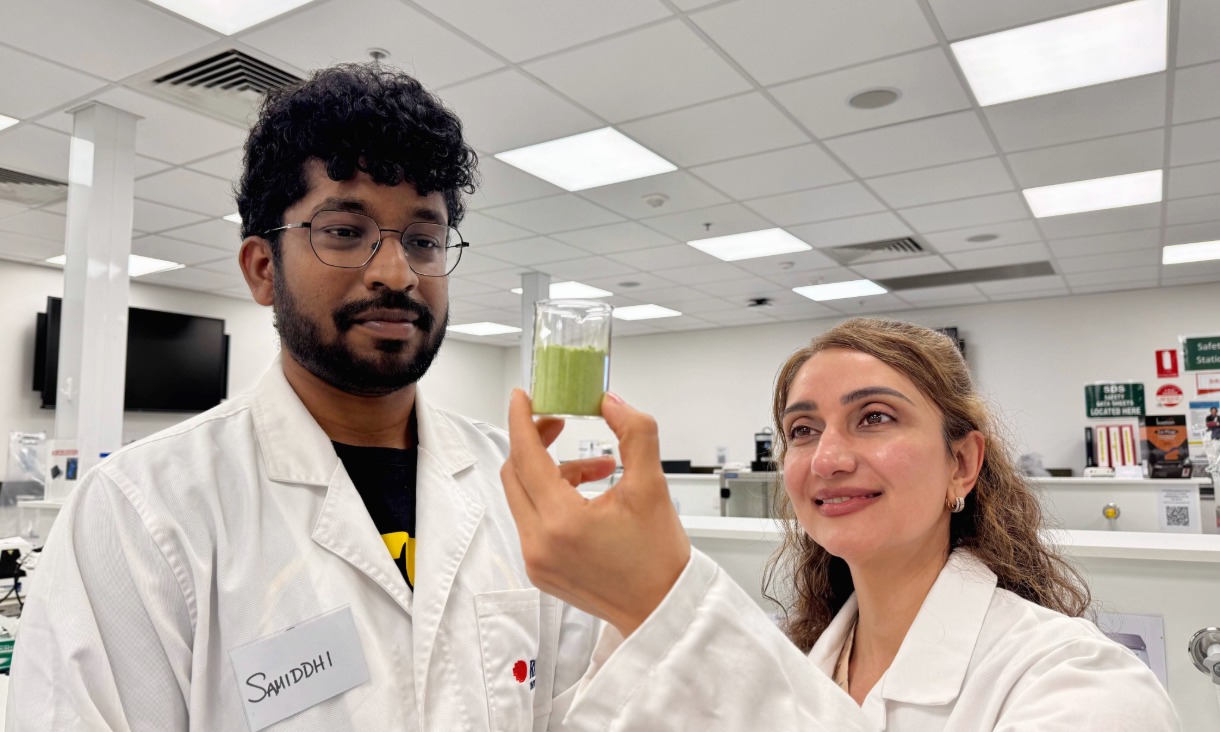Hailing from various parts of RMIT, these women have all utilised the services of RMIT’s AWS Cloud Supercomputing (RACE) for their research.
RACE is an Australian-first: a dedicated commercial cloud supercomputing facility, with the University collaborating with Amazon Web Services (AWS) and AARNet to allow RMIT staff and students access to scalable and high-powered computing to support digital innovation.
Access to better and faster computing has massive implications for research: it can reduce the time taken to process enormous quantities of data, yielding quicker, more cost-effective results, and it can also increase the amount of data researchers can utilise, improving accuracy and impact.
“Cloud computing resources at RACE have significantly accelerated our research endeavours, particularly in the process of machine learning,” said Associate Professor Rebecca Yang, from the School of Property, Construction and Project Management in the College of Design and Social Context (DSC).
“Specifically, one of our research tasks is to develop and train complex multi-agent reinforcement learning models that simulate the decision-making process of high-demand users in the stochastic energy market.”
“Previously, the training process required several months to complete even with a high-end PC. With RACE's GPU-based cloud servers, each individual machine learning process has been compressed from days to hours.”
Her colleague, biologist Dr Jennifer Boer echoes this sentiment.
“My research focuses on the immunomodulatory effects of both vaccines and nanoparticle-based vaccines in the context of infectious diseases and cancer,” she said,
“When working with large biological datasets, some of the biggest challenges remains the storage of precious patient data with the necessary safety contingencies, whilst having the data readily accessible to high performance computing resources.”
Not many people realise that long-term personalised private cloud computing services outside of the academic environment can often turn out to be very expensive,.”
“RACE Hub provides these services at no additional cost for researchers, and they are patient and inclusive.”
Inclusion at the core of the battle for gender equality
Inclusivity is an important aspect of RACE, as it’s at the forefront of the fight for gender equality. Many researchers who utilise the RACE services are women in STEMM, an area where women are chronically underrepresented in the workforce, particularly at higher levels.
‘Inspire Inclusion’ is the theme of International Women’s Day 2024, and it’s something close to the heart of the women who can sometimes feel on the periphery in male-dominated industries, like many of those in STEMM.
“I would like to see a 50% gender balance right across STEMM,” said Professor Sylvia Urban, who works in the School of Science and is the is the leader of the Marine and Terrestrial Natural Product (MATNAP) research group, the program manager of the Bachelor of Science and the Reconciliation Facilitator for the School of Science (STEM College).
“Young girls need to see women at the forefront and as leaders. This will take time to shift completely but the journey has started. We should also recognise that we should also promote more intersectional opportunities.”
“We need to promote women doing amazing things so that we can break the barriers and stereotypes for future generations.”
‘Intersectionality’ refers to the ways in which different aspects of a person’s identity can expose them to overlapping forms of discrimination and marginalisation and is an important part of understanding how to combat not just gender discrimination, but all forms of it.
“Intersectionality is important. My father migrated to Australia from a non-English speaking country, and I have received prejudice because of my ethnic heritage as well as my gender,” said Professor Michelle Spencer, Deputy Director Centre for Digital Innovation at RMIT and leader of the Computational Materials Chemistry Group.
Spencer said that having visible leadership helped people with diverse identities see a path forward for themselves.
“When I was a student studying chemistry at uni, I didn’t have any female lecturers and there were no female academics in the department,” she said.
“This made it challenging for me to see a career in this field for myself. Throughout my career as a woman in science, I have always been in the minority.”
“We need to make sure women are visible in these areas and at the same time shown respect.”
It’s not just the STEMM fields where the fight for gender equality is being waged. Professor Melanie Davern, Director Australian Urban Observatory and a Vice Chancellor’s Senior Research Fellow, says it’s important to recognise that gender equality is a whole-of-society issue.
Gender discrimination is present across all disciplines and workplaces,” she said.
“I am a Humanities researcher in the School of Global Urban Social Studies, and I would like to see more support for all female academics across their entire careers, and for our university to attract new students through applied and transdisciplinary research opportunities.”
Professor Spencer feels that while the fight for equality remains, the balance is starting to shift, slowly but surely pointing to a brighter, inclusive future.
Her view is echoed by Yang. “I have observed great improvements in terms of gender equality and inclusion within STEM,” said Yang.
“I trust that future generations may have equal opportunities for advancement and recognition based on their merits and contributions.”
Dr Boer agrees with this sentiment. “There has been a significant increase in the number of women in leadership positions in academia over the past few decades.”
“My hope is that future generations in all areas of STEMM, can work in balanced workplaces where inclusivity flourishes and gender bias is a thing of the past. For some areas of STEMM this is slowly starting to emerge, but there is still a long way to go.”
Story by: Finn Devlin







